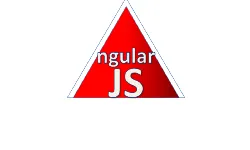
Front-End JavaScript Frameworks: AngularJS 
Learn AngularJS and build dynamic, interactive web applications with this comprehensive course. Master the fundamentals of AngularJS, the popular JavaScript framework, and discover how to create single-page applications with this powerful technology. Learn how to use two-way data binding, directives, filters, and more. Get hands-on experience with UI routing and templates. Explore modules and services, and build a functional front-end web application. ▼
ADVERTISEMENT
Course Feature
![]() Cost:
Cost:
Free
![]() Provider:
Provider:
Coursera
![]() Certificate:
Certificate:
Paid Certification
![]() Language:
Language:
English
![]() Start Date:
Start Date:
31st Jul, 2017
Course Overview
❗The content presented here is sourced directly from Coursera platform. For comprehensive course details, including enrollment information, simply click on the 'Go to class' link on our website.
Updated in [June 30th, 2023]
This course, Front-End JavaScript Frameworks: AngularJS, focuses on the popular Javascript-based front-end framework, AngularJS. Learners will be introduced to the Model View Controller (MVC) design pattern in the context of AngularJS, and will explore two-way data binding, angular directives and filters, controllers and scopes, UI routing and templates, and angular modules and services. Single page application (SPA) development using Angular will also be explored. By the end of the course, learners will be able to implement a functional front-end web application using AngularJS.
[Applications]
Upon completion of this course, learners will have the knowledge and skills to apply the concepts of AngularJS to develop functional front-end web applications. Learners may also wish to consider taking the new Angular course, which covers the latest version of Angular.
[Career Paths]
One job position path that learners can pursue after completing this course is a Front-End Web Developer specializing in AngularJS. This position involves developing web applications using the AngularJS framework, as well as other front-end technologies such as HTML, CSS, and JavaScript. The Front-End Web Developer must be able to create user-friendly and visually appealing web applications, as well as ensure that the applications are optimized for performance and scalability.
The development trend for this position is to stay up-to-date with the latest technologies and frameworks, such as AngularJS, React, and Vue.js. Additionally, the Front-End Web Developer should be familiar with the latest web standards and best practices, such as accessibility and security. As the web continues to evolve, the Front-End Web Developer must be able to adapt and learn new technologies quickly.
[Education Paths]
The recommended educational path for learners of this course is to pursue a degree in Full Stack Web and Multiplatform Mobile App Development. This degree program focuses on the development of web and mobile applications using the latest technologies such as Bootstrap 4, Angular, Ionic Ver. 3, Cordova, NativeScript Version 3, NodeJS, Express, and MongoDB. Students will learn how to design, develop, and deploy web and mobile applications using these technologies. They will also gain an understanding of the principles of software engineering, including software architecture, design patterns, and best practices. Additionally, they will learn how to use the latest tools and techniques to create robust, secure, and scalable applications.
The development trend for this degree program is to focus on the latest technologies and tools, such as React, Vue, and GraphQL, as well as cloud-native development and DevOps. Additionally, students will learn how to use modern development techniques such as test-driven development, continuous integration, and continuous delivery. As the demand for web and mobile applications continues to grow, this degree program will help students stay ahead of the curve and be prepared for the future of software development.
Course Provider

Provider Coursera's Stats at AZClass
Discussion and Reviews
0.0 (Based on 0 reviews)
Explore Similar Online Courses

Proficiency Course in Spanish

Music Theory for Songwriters: From Beginner to Producer

Python for Informatics: Exploring Information

Social Network Analysis

Introduction to Systematic Review and Meta-Analysis

The Analytics Edge

DCO042 - Python For Informatics

Causal Diagrams: Draw Your Assumptions Before Your Conclusions

Whole genome sequencing of bacterial genomes - tools and applications

React Basics Course

JavaScript: Functions


Start your review of Front-End JavaScript Frameworks: AngularJS